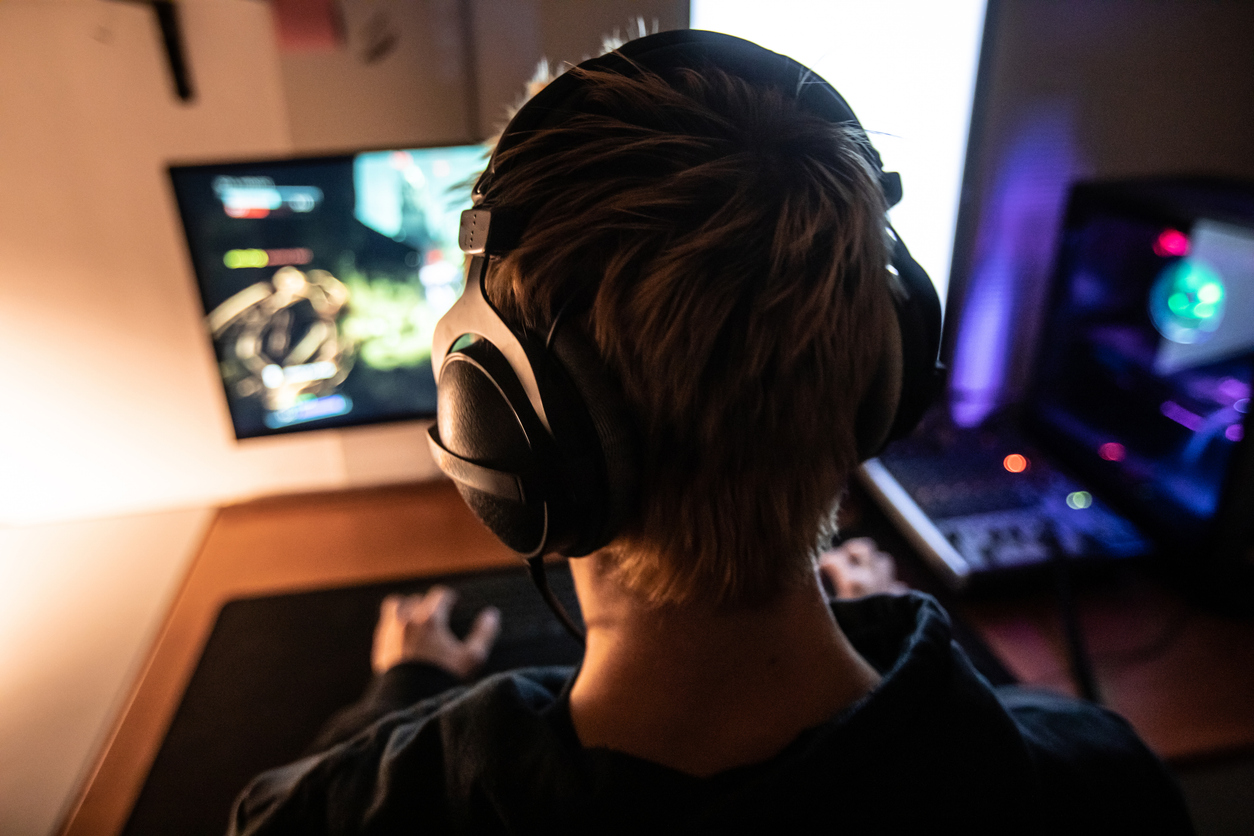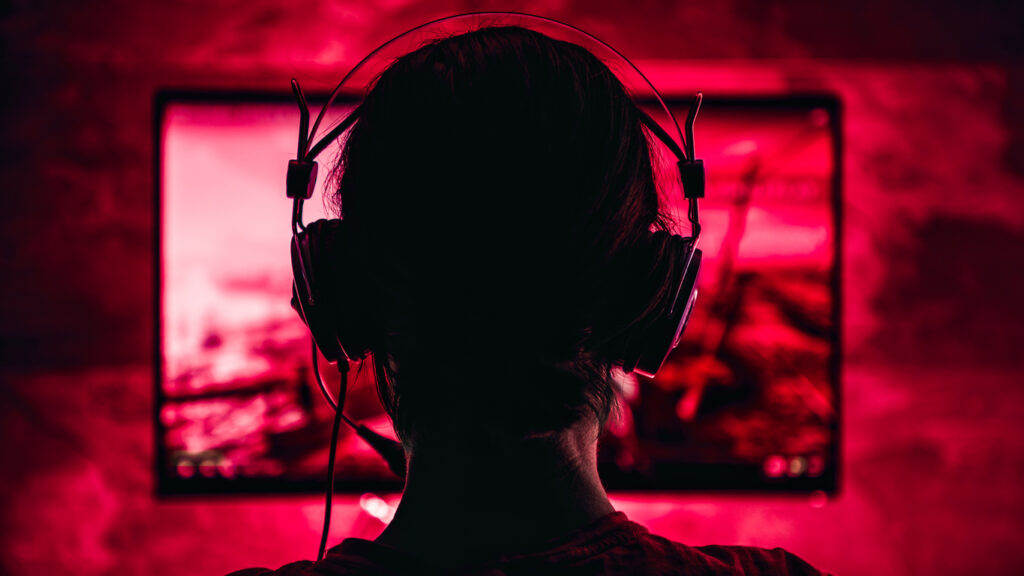Now Reading: Video Game Addiction Treatment: A Guide to Regaining Balance
-
01
Video Game Addiction Treatment: A Guide to Regaining Balance
Video Game Addiction Treatment: A Guide to Regaining Balance

In today’s digital age, video games have become a popular form of entertainment for people of all ages. While gaming can be enjoyable and even beneficial in moderation, for some individuals, it can develop into an addiction. Video game addiction can disrupt daily life, relationships, and mental well-being. The good news is that treatment is available to help regain control and achieve a healthier balance.
In this article, we’ll explore the signs of video game addiction, its effects, and effective treatment options.
What Is Video Game Addiction?
Video game addiction, also known as gaming disorder, is characterized by excessive or compulsive use of video games despite negative consequences. The World Health Organization (WHO) officially classified gaming disorder in 2018 as a mental health condition, emphasizing its potential seriousness.
Common Symptoms of Video Game Addiction
If you or someone you know struggles with video game addiction, the following signs may be present:
- Spending an excessive amount of time gaming, often neglecting other responsibilities.
- Difficulty reducing or stopping gaming, even when attempting to cut back.
- Using gaming as a way to escape real-life problems or emotions.
- Experiencing withdrawal symptoms, such as irritability or restlessness, when unable to play.
- Damaged relationships or poor academic/work performance due to gaming.
The Impact of Video Game Addiction
The consequences of video game addiction can be far-reaching. According to a study published in the journal Cyberpsychology, Behavior, and Social Networking, individuals with gaming addiction often experience:
- Mental Health Issues: Increased risk of depression, anxiety, and social isolation.
- Physical Health Problems: Poor posture, eye strain, and sleep disturbances.
- Academic and Career Decline: Neglected responsibilities leading to lower grades or job performance.
- Strained Relationships: Conflict with family or friends due to excessive gaming.
Recognizing the impact of addiction is a crucial first step toward seeking treatment.

Effective Video Game Addiction Treatment Options
1. Self-Help Strategies
For mild cases, individuals can take steps to manage their gaming habits:
- Set Limits: Establish specific time limits for gaming each day. Use alarms or apps to monitor screen time.
- Replace Gaming with Other Activities: Engage in hobbies like reading, exercise, or social activities to fill the void.
- Create a Gaming-Free Environment: Remove gaming consoles or devices from bedrooms or other personal spaces.
2. Professional Counseling or Therapy
Therapy is one of the most effective treatments for video game addiction. Therapists use evidence-based approaches to address underlying issues and change behaviors.
- Cognitive Behavioral Therapy (CBT): CBT helps individuals recognize negative thought patterns and develop healthier coping mechanisms. According to a meta-analysis published in Addiction Science & Clinical Practice, CBT has shown significant success in treating gaming addiction.
- Family Therapy: In cases involving children or teenagers, family therapy can improve communication and establish healthy boundaries within the household.
3. Support Groups
Support groups offer a sense of community and shared experiences, which can be incredibly motivating. Organizations like Online Gamers Anonymous (OLGA) provide safe spaces for individuals to share their challenges and successes.
4. Detox Programs
A gaming detox involves abstaining from video games for a set period, often under the guidance of a professional. This “reset” allows individuals to reestablish healthier routines.
5. Medication
While there is no specific medication for video game addiction, medications may be prescribed to treat underlying conditions like depression or anxiety. Always consult a healthcare provider before starting any medication.

Prevention: Building Healthy Gaming Habits
Prevention is just as important as treatment. Here are a few tips for developing healthy gaming habits:
- Balance Is Key: Ensure gaming is balanced with other activities like exercise, socializing, and work.
- Take Breaks: Follow the 20-20-20 rule—every 20 minutes, look away from the screen for 20 seconds at something 20 feet away.
- Monitor Usage: Parents can set parental controls to limit gaming time and monitor content.
The Role of Family and Friends in Recovery
Family and friends play a vital role in supporting someone through recovery. Here’s how they can help:
- Encourage Open Communication: Create a safe space for the individual to discuss their feelings without judgment.
- Set Boundaries: Help establish clear rules about gaming, such as no gaming during meals or late at night.
- Offer Positive Reinforcement: Celebrate small victories, like reduced gaming time or engaging in new hobbies.
Statistics on Video Game Addiction
- Around 3-4% of gamers worldwide are estimated to have gaming disorders, according to the American Journal of Psychiatry.
- A survey by Common Sense Media found that 59% of parents believe their teens are addicted to video games.
- Gaming addiction is more common in males, particularly adolescents and young adults.
These statistics highlight the importance of addressing this growing concern with effective treatment options.
Finding Help for Video Game Addiction
If you or a loved one is struggling with video game addiction, seeking help is a sign of strength. Start by:
- Consulting a licensed therapist who specializes in behavioral addictions.
- Exploring online resources like Therapy Route to find local support.
- Talking to your primary care doctor for guidance and referrals.
Remember, recovery takes time, but with the right tools and support, it is possible to regain control and live a balanced life.
Final Thoughts
Video game addiction can significantly impact an individual’s life, but effective treatments are available to help restore balance. Whether it’s through therapy, support groups, or self-help strategies, taking the first step toward treatment can lead to lasting change.
At HealthyMindLab, we are committed to raising awareness about mental health and providing resources to empower individuals on their journey to recovery. If you found this article helpful, share it with someone who might benefit from this information. Together, we can create a healthier and more mindful community.
Sources:
- World Health Organization (2018). Gaming Disorder.
- Common Sense Media (2016). Survey on Teens and Video Games.
- American Journal of Psychiatry (2019). Prevalence of Gaming Disorder.
- Addiction Science & Clinical Practice (2021). CBT Effectiveness in Gaming Addiction.
























